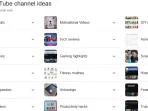Beat Procrastination: 7 Tiny Wins You Can Do Today
The New Face of Time Management
In a world of constant notifications and digital distractions, procrastination has become a silent productivity killer. Yet, experts agree that people can retrain their brains to take action faster and work smarter. Instead of waiting for massive bursts of motivation, small, consistent actions deliver long-term focus.
Today, we reveal seven tiny wins you can do right now to outsmart procrastination — practical, science-backed, and easy to apply. These Simple Hacks for a Productive Life might change the way you approach every day.

Section 1: The Psychology of Delayed Action
Procrastination often begins long before we notice it. Studies from behavioral science show that our brains naturally favor short-term comfort over long-term gains. Clicking another video or checking one more message feels rewarding because our brain releases dopamine, the pleasure chemical. The longer we wait, the harder it becomes to start.
However, once you understand this mechanism, you can work with it, not against it. The trick is to create small, easy wins that convince your brain progress has already begun. Momentum, not motivation, is the real key.
Section 2: Start with the 2-Minute Rule
One of the most popular productivity techniques comes from author David Allen’s “Getting Things Done” method — if a task takes two minutes or less, do it immediately. This simple approach clears minor obstacles before they snowball into mental clutter.
Folding one shirt, replying to a short email, or washing one cup resets your productivity energy. Completing micro tasks builds psychological momentum; suddenly, that larger project feels far more manageable. The 2-minute rule is one of the best Simple Hacks for a Productive Life you can embrace right now.
Section 3: Break Big Goals into Micro-Actions
Big goals often cause paralysis because they look impossible to achieve in a single step. To beat that mental block, break everything down into the smallest possible tasks. Instead of “Finish project report,” write “Collect data from file A,” or “Write the introduction paragraph.”
Psychologists call this micro-tasking. Each small step you complete activates your brain’s reward pathway and boosts confidence. The brain learns to associate action with positive emotion, making it easier to keep going. By turning mountains into pebbles, you strip power away from procrastination.
Section 4: Time-Block Your Focus
Every minute without a plan becomes a playground for procrastination. Time-blocking is the art of assigning specific hours to focused work. Instead of a vague to-do list, you create a schedule that dedicates time for both work and rest.
Start small. Schedule 25 minutes for deep focus followed by a five-minute break — this is known as the Pomodoro Technique. When used consistently, time-blocking transforms chaotic days into structured sprints of progress, ensuring that every task has a home on your calendar.
Section 5: The Power of Changing Your Environment
Your surroundings shape your behavior more than you think. A cluttered desk, a noisy phone, or an open tab on YouTube all compete for your attention. Modifying your environment even slightly can trigger massive improvements in self-discipline.
Try the “distraction-free zone” rule: keep your workspace clean, your phone on silent, and your browser tabs limited to essentials. Visual order encourages mental order. These environmental tweaks are often overlooked but are among the most practical Simple Hacks for a Productive Life.
Section 6: Reward Progress, Not Perfection
Most people procrastinate because they fear imperfect results. But waiting for perfection is a trap that kills momentum. The antidote is celebrating small wins. Reward yourself after finishing a section of work, making that difficult call, or sticking to your time block.
Small rewards — a coffee break, a quick walk, or five minutes of your favorite song — can train your brain to crave accomplishment rather than avoidance. Consistently rewarding progress builds resilience and helps reprogram your mindset toward completion, not hesitation.
Section 7: Reframe the Task Emotionally
Emotion drives attention. When a task feels boring, frustrating, or emotionally disconnected, procrastination kicks in. That’s why reframing is crucial. Reframing means shifting your emotional narrative from “I have to do this” to “I choose to do this.”
Ask yourself: how will completing this task improve my situation or make life easier tomorrow? Connecting tasks to purpose injects emotional energy into your workflow. Suddenly, writing reports becomes a path to professional growth, not just another checklist item.
Section 8: Eliminate Choice Overload
Decision fatigue is one of the hidden fuels of procrastination. The more options you have, the harder it becomes to choose, and the longer you delay action. The solution is to simplify decisions in advance.
Automate or pre-plan repetitive tasks: choose your outfit the night before, schedule meals, and set digital tools to run automatically. The fewer choices your brain faces daily, the more cognitive energy you save for creative and meaningful work. This streamlining of decisions is another pillar of Simple Hacks for a Productive Life.
Section 9: Use Accountability to Keep Momentum
Procrastination thrives in isolation. When no one’s watching, it’s easy to slip into delay mode. Accountability changes the psychological equation. Whether it’s sharing your goals with a friend, joining an online group, or using apps that track your focus, accountability raises stakes — and motivation.
Even the act of telling someone your plan boosts your likelihood of finishing it. Social pressure can feel uncomfortable at times, but it’s a powerful motivator. Think of accountability as external motivation that supports your internal goals.
Section 10: Rest Intentionally, Not Accidentally
Procrastination often disguises itself as fatigue. We say we’re “resting” but end up scrolling endlessly or multitasking through breaks. True rest restores your mind; fake rest drains it further. The difference lies in intention.
Plan real downtime. Walk outside, stretch, meditate, or listen to calming music without screens. Intentional rest not only prevents burnout but also resets your ability to focus during work sessions. When balanced properly, rest becomes a strategic tool, not a distraction.
Section 11: Turn Motivation Into Routine
Motivation is inconsistent; habit is reliable. The ultimate goal of these tiny wins is to make action automatic. When good habits take root, procrastination loses its grip. Start by attaching new actions to existing routines — for example, review your goals right after morning coffee or clear your desk before logging off each day.
The more automatic these habits become, the less willpower is needed to stay consistent. Over time, these micro-routines merge into a lifestyle. That’s where Simple Hacks for a Productive Life evolve into permanent transformation.
Section 12: The Chain Reaction of Small Wins
Each small victory strengthens your confidence and momentum. Once you finish a 5-minute task, you gain enough psychological energy to tackle another. This cumulative effect builds what experts call a productivity chain — every success links directly to the next.
When procrastination feels overwhelming, focus on achieving one win at a time. The satisfaction of progress fuels further progress. This positive loop replaces hesitation with action, transforming daily discipline from an effort into a reflex.
Section 13: Practical Morning Routine for Action
The morning sets the tone for your entire day. Instead of checking emails first thing, spend your initial minutes on quick actions that spark motivation. Make your bed, drink water, and plan the top three priorities for the day.
These micro actions convey a subconscious message that you’re already winning. Starting strong sets a high baseline for the rest of the day. These are easy, realistic, and among the most effective Simple Hacks for a Productive Life you can start using immediately.
Section 14: Track, Review, and Adjust
Every productivity system needs reflection. At the end of each day or week, review what worked and what didn’t. Did a specific strategy prevent procrastination? Did distractions creep in again? Tracking progress allows you to respond intelligently, not impulsively.
Simple tracking methods work best — a notebook, a digital checklist, or even a wall calendar where you mark completed goals. Patterns will emerge quickly, helping you refine your approach. Remember: self-awareness is the ultimate anti-procrastination tool.
Section 15: Final Thoughts — Progress, Not Perfection
Beating procrastination isn’t about transforming overnight. It’s about small, daily victories that build into lifelong habits. The first step may feel tiny, but it’s often the most crucial one. Start with one or two techniques from this list today.
Over time, these small wins compound into extraordinary results. Whether it’s writing a single paragraph, completing a tiny chore, or organizing a corner of your workspace, progress always beats perfection. Take the step — your most productive life awaits.






